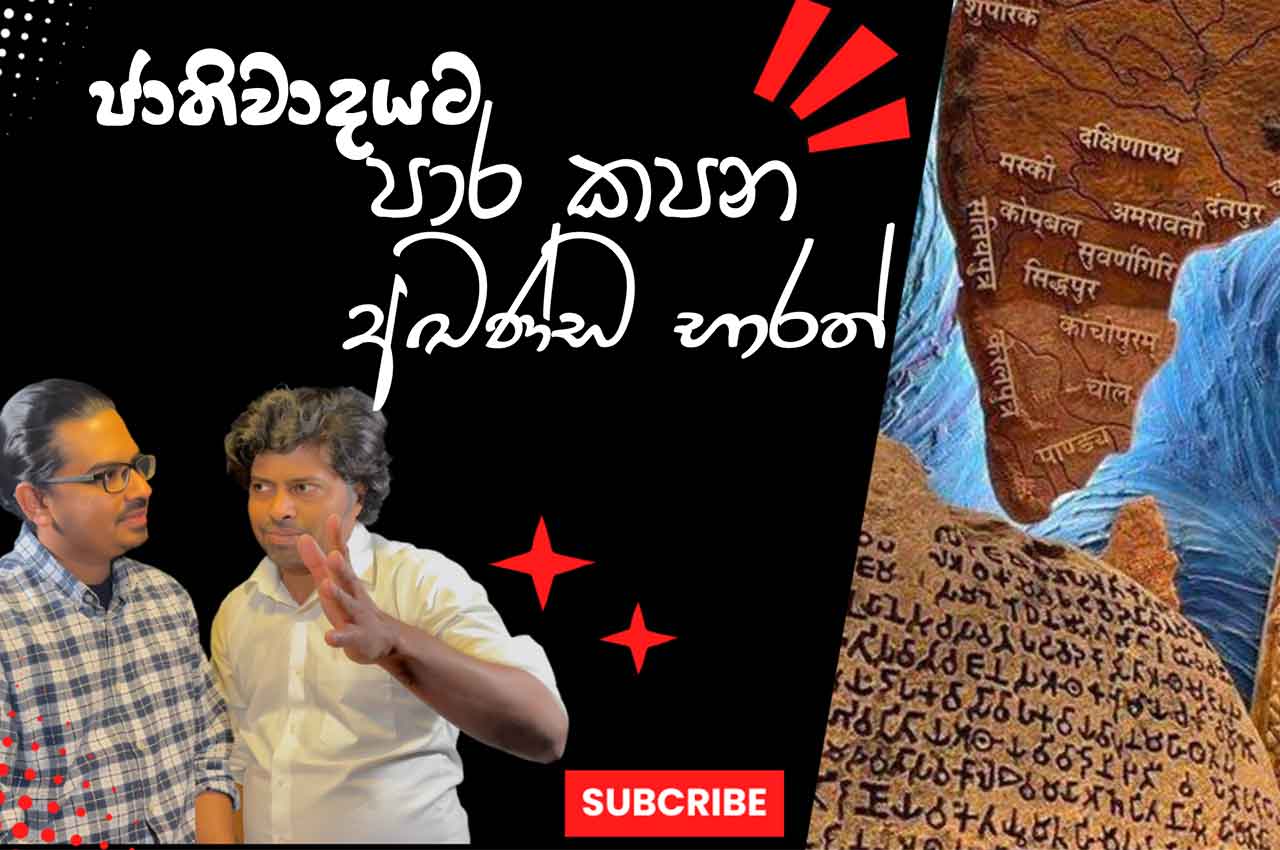ඉන්දීය අගමැති නරේන්ද්ර මෝදි විසින් මහා භාරතයේ අභිමානය රැකෙන පාර්ලිමේන්තු සංකීර්ණයක් නවදිල්ලියේ ඉදිකළ අතර මෑතකදී එය උත්සවශ්රී යෙන් විවෘත කරන්නට යෙදිණි. අභිනව පාර්ලිමේන්තුවේ කථානායක අසුන අසල සියල්ලන්ට ප්රදර්ශනය වන පරිදි ඉන්දියාවේ විශාල සිතියමක් සවිකර තිබේ. එම සිතියම හ¾දුන්වන්නේ ‘අඛණ්ඩ භාරත්’ යනුවෙනි. අඛණ්ඩ භාරත් යන්නෙන් අදහස් වන්නේ නොබෙදුණු ඉන්දියාව නැතහොත් මහා භාරතයයි. එම සිතියමෙහි දැක්වෙන්නේ ඉන්දියාව, පාකිස්තානය, බංග්ලාදේශය, ඇෆ්ගනිස්තානය, නේපාලය, භූතානය සහ ශ්රී ලංකාව ඇතුළත් එකම ඉන්දියානු උප මහාද්වීපයකි.
මේ අදහස ප්රථමයෙන් ඉදිරිපත් කළේ ඉන්දීය ජාතික නිදහස් සටනේ නායකයකු වූ සර්දාර් පටෙල් විසිනි. ශේර්ෂ්ඨ ඉන්දීය වීර කාව්යවලින් එකක් වන මහා භාරතයේ සඳහන් වන අන්දමට වර්තමාන ඉන්දියාව, පාකිස්තානය, බංග්ලාදේශය, ඇෆ්ගනිස්තානය, ඉරානයේ සමහර ප්රදේශ ඇතුළුව හිමාලයේ සිට ලංකාව ඔස්සේ ඉන්දියන් සාගරය දක්වා විහිදුණු විශාල ප්රදේශයක් ඊට ඇතුළත් වෙයි. මහත්මා ගාන්ධි, ශ්රී නේරු වැනි නායකයන් මුල් වකවානුවේ අඛණ්ඩ භාරත් දේශයේ අනුගාමිකයෝ වූහ.
1947දී ඉන්දියාව බෙදා වෙන් කිරීමත් සමඟ ඉන්දියානු උප මහාද්වීපය පිළිබඳ අදහස අභියෝගයට ලක් වූ අතර ඉන්දියාව හා පාකිස්තානය වශයෙන් රටවල් දෙකක් බිහි විය. වර්තමානයේ පවතින සංකීර්ණ භූ දේශපාලන යථාර්ථයන් හමුවේ අඛණ්ඩ භාරත් සංකල්පය නැවත මතුව තිබේ. විශේෂයෙන් හින්දු ජාතිකවාදීන් අතර අඛණ්ඩ භාරත් ජනප්රිය සංකල්පයක් වී ඇත. එක්සත් උප මහද්වීපයක් තුළ හින්දු සංස්කෘතික වටිනාකම් වඩාත් හොඳින් ප්රවර්ධනය කළ හැකි වනු ඇතැයි හින්දුහු විශ්වාස කරති.
අඛණ්ඩ භාරත් සිතියම නව පාර්ලිමේන්තුව තුළ තැන්පත් කිරීමේ අදහස ඉන්දියානුවන් තුළ අඛණ්ඩ භාරතය පිළිබඳ මතවාදයට උත්තේජනයක් ලබාදීම විය යුතුය. ඉන්දීය පාර්ලිමේන්තුව නියෝජනය කරන මන්ත්රිවරුන්ගේ මෙහෙවර වනාහි, ඉන්දියාව අඛණ්ඩ භාරතය දක්වා ඉදිරියට මෙහෙයවීම බව සිතියම ලබා දෙන පණිවුඩය කුමක්ද? අපි දැන් කතා කරමු!
Akhand Bharat (अखण्ड भारत),
meaning “Undivided India,” is a concept rooted in cultural, historical, and political discourse, particularly among some Indian thinkers, historians, and political groups. It envisions a unified Indian subcontinent, encompassing the territories of modern-day India, Pakistan, Bangladesh, Nepal, Bhutan, Sri Lanka, and sometimes Afghanistan, Myanmar, and Tibet. Historical and Cultural
Background: Ancient Context: The idea of a culturally unified Bharatvarsha (India) stems from ancient Hindu texts and epics like the Mahabharata, which reference a land extending across much of South Asia. The term symbolizes cultural and spiritual unity, with shared heritage in languages, religions, and traditions.
Medieval Period: During the reigns of empires such as the Maurya, Gupta, Mughal, and others, significant parts of the subcontinent were politically unified, though not always simultaneously. Colonial Era: The British consolidated the Indian subcontinent into a single administrative entity, which some view as a precursor to modern visions of Akhand Bharat. Partition of 1947: The division of British India into India and Pakistan, and later the independence of Bangladesh in 1971, has been a focal point in the Akhand Bharat discussion.
Ideological Aspects: Political Vision: Proponents often align with nationalist ideologies, particularly those associated with Hindutva, like the Rashtriya Swayamsevak Sangh (RSS). They argue for a peaceful or cultural reunification of the subcontinent.
Cultural Unity: Supporters emphasize shared traditions, languages, and history as the basis for this vision, arguing that artificial borders separate people with deep cultural ties.
Criticism and Concerns: Opponents see the idea as impractical, given the distinct national identities, religious diversity, and political realities of the region. Some view it as a political tool to promote majoritarian agendas, risking regional tensions.
Contemporary Relevance: Geopolitics: The idea occasionally surfaces in Indian political rhetoric, but it is rarely treated as a practical geopolitical goal.
Media and Popular Culture: Akhand Bharat appears in debates, literature, and media as a philosophical or nostalgic concept rather than a concrete political aspiration. While the idea holds cultural and historical significance for some, its practical implementation is widely debated due to the complex geopolitical, social, and religious realities of South Asia today.

